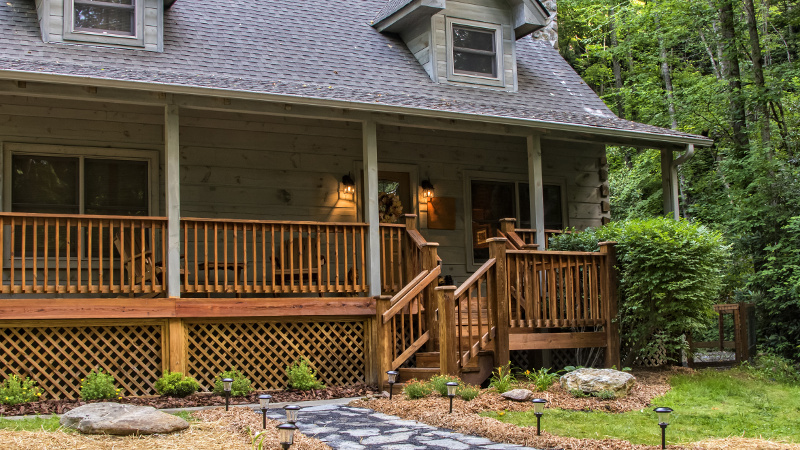
What do I do once I have my real estate licence?
Like most new professionals in real estate, you have probably passed the state licensing examination. After obtaining your license, the process will vary from state to state. However, there are several basic steps to take in order to start your career off right.
You should be very proud of yourself if you pass the real-estate exam. It's important to remember that the process will be long and tedious, so it's worth taking your time and doing your research before you commit yourself to this career path.
The next step after passing your real estate exam is to locate a brokerage who will sponsor you. This will give you an advantage in your new career and be a good mentor.
Once you have a broker in place, it's the right time to send your license application to the State. Be sure to provide all of the necessary documents, including your fingerprints and a background check.

After receiving your complete application, the state will review it and issue you a license within a couple of business days. Once you are licensed you can start to work in realty and find clients for your company.
What to do after you pass the real estate exam in New York?
The first step after passing the NY real estate salesperson exam is to complete the 75-hour pre-licensing course. The course includes an exam with a minimum score of 70%.
After passing the prelicensing exam, you will have to pass another exam in order to sit for the New York Real Estate License Exam. This exam contains multiple-choices questions, and it takes 90 minutes to finish.
You can apply for the exam using your eAccessNY Account, which is completely free. It also allows you to track all your exam results. If you fail the test, you are entitled to a free retake.
Your exam fee will also be prorated based on your test score, and you'll pay this fee at the testing center the same day that you take the exam. You can pay this fee using credit cards, money orders, cashier's checks or personal checks made payable to PSI.

You can apply for your license if you have been working as an agent for at least a year. You'll need to be able show proof of employment (such as a copy your paycheck or contract) and an E&O certificate from a broker.
Your career as a property professional will continue to progress if you obtain your realty license. After you reach this milestone, your career will flourish and you can earn enough money to support your family. Keep in mind that the real estate industry is a competitive one, and you'll need to work hard to be successful.
FAQ
Do I need flood insurance
Flood Insurance covers flood damage. Flood insurance helps protect your belongings and your mortgage payments. Find out more about flood insurance.
How do I get rid termites & other pests from my home?
Over time, termites and other pests can take over your home. They can cause serious destruction to wooden structures like decks and furniture. To prevent this from happening, make sure to hire a professional pest control company to inspect your home regularly.
How much will it cost to replace windows
Replacement windows can cost anywhere from $1,500 to $3,000. The total cost of replacing all your windows is dependent on the type, size, and brand of windows that you choose.
What are the top three factors in buying a home?
The three most important factors when buying any type of home are location, price, and size. The location refers to the place you would like to live. Price is the price you're willing pay for the property. Size refers to how much space you need.
How do I know if my house is worth selling?
If you have an asking price that's too low, it could be because your home isn't priced correctly. Your asking price should be well below the market value to ensure that there is enough interest in your property. Get our free Home Value Report and learn more about the market.
What should I be looking for in a mortgage agent?
A mortgage broker assists people who aren’t eligible for traditional mortgages. They look through different lenders to find the best deal. Some brokers charge a fee for this service. Other brokers offer no-cost services.
Statistics
- When it came to buying a home in 2015, experts predicted that mortgage rates would surpass five percent, yet interest rates remained below four percent. (fortunebuilders.com)
- This means that all of your housing-related expenses each month do not exceed 43% of your monthly income. (fortunebuilders.com)
- Private mortgage insurance may be required for conventional loans when the borrower puts less than 20% down.4 FHA loans are mortgage loans issued by private lenders and backed by the federal government. (investopedia.com)
- Some experts hypothesize that rates will hit five percent by the second half of 2018, but there has been no official confirmation one way or the other. (fortunebuilders.com)
- Based on your credit scores and other financial details, your lender offers you a 3.5% interest rate on loan. (investopedia.com)
External Links
How To
How to Manage a Rental Property
Although renting your home is a great way of making extra money, there are many things you should consider before you make a decision. These tips will help you manage your rental property and show you the things to consider before renting your home.
Here are the basics to help you start thinking about renting out a home.
-
What should I consider first? Consider your finances before you decide whether to rent out your house. If you have any debts such as credit card or mortgage bills, you might not be able pay for someone to live in the home while you are away. It is also important to review your budget. If you don't have enough money for your monthly expenses (rental, utilities, and insurance), it may be worth looking into your options. It might not be worth the effort.
-
How much will it cost to rent my house? There are many factors that influence the price you might charge for renting out your home. These factors include location, size, condition, features, season, and so forth. Keep in mind that prices will vary depending upon where you live. So don't expect to find the same price everywhere. Rightmove estimates that the market average for renting a 1-bedroom flat in London costs around PS1,400 per monthly. This means that you could earn about PS2,800 annually if you rent your entire home. That's not bad, but if you only wanted to let part of your home, you could probably earn significantly less.
-
Is it worth the risk? It's always risky to try something new. But if it gives you extra income, why not? You need to be clear about what you're signing before you do anything. It's not enough to be able to spend more time with your loved ones. You'll need to manage maintenance costs, repair and clean up the house. These are important issues to consider before you sign up.
-
Are there any advantages? It's clear that renting out your home is expensive. But, you want to look at the potential benefits. Renting your home is a great way to get out of the grind and enjoy some peace from your day. It's more fun than working every day, regardless of what you choose. Renting could be a full-time career if you plan properly.
-
How can I find tenants? After you have made the decision to rent your property out, you need to market it properly. Start by listing online using websites like Zoopla and Rightmove. Once you receive contact from potential tenants, it's time to set up an interview. This will help you assess their suitability and ensure they're financially stable enough to move into your home.
-
How can I make sure that I'm protected? If you're worried about leaving your home empty, you'll need to ensure you're fully protected against damage, theft, or fire. In order to protect your home, you will need to either insure it through your landlord or directly with an insured. Your landlord will often require you to add them to your policy as an additional insured. This means that they'll pay for damages to your property while you're not there. This does not apply if you are living overseas or if your landlord hasn't been registered with UK insurers. In this case, you'll need to register with an international insurer.
-
If you work outside of your home, it might seem like you don't have enough money to spend hours looking for tenants. You must put your best foot forward when advertising property. A professional-looking website is essential. You can also post ads online in local newspapers or magazines. Additionally, you'll need to fill out an application and provide references. While some prefer to do all the work themselves, others hire professionals who can handle most of it. Interviews will require you to be prepared for any questions.
-
What happens once I find my tenant If there is a lease, you will need to inform the tenant about any changes such as moving dates. You can negotiate details such as the deposit and length of stay. While you might get paid when the tenancy is over, utilities are still a cost that must be paid.
-
How do you collect the rent? When the time comes to collect the rent, you'll need to check whether your tenant has paid up. If not, you'll need to remind them of their obligations. You can deduct any outstanding payments from future rents before sending them a final bill. If you're having difficulty getting hold of your tenant you can always call police. They won't normally evict someone unless there's been a breach of contract, but they can issue a warrant if necessary.
-
What can I do to avoid problems? While renting out your home can be lucrative, it's important to keep yourself safe. You should install smoke alarms and carbon Monoxide detectors. Security cameras are also a good idea. Make sure your neighbors have given you permission to leave your property unlocked overnight and that you have enough insurance. Do not let strangers in your home, even though they may be moving in next to you.